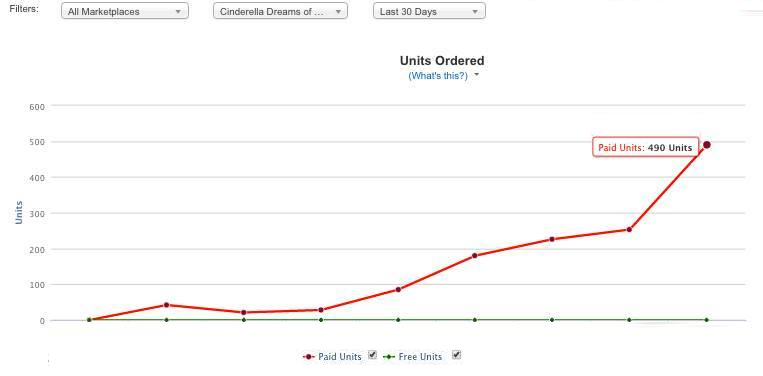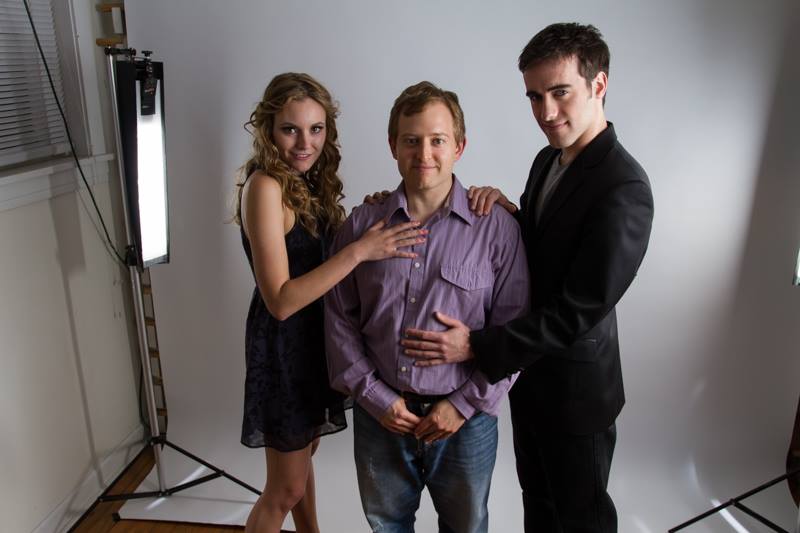THE BOOK LAUNCH MASTERPLAN – 8 YEARS OF LESSONS LEARNED
With Nick Stephenson & Bryan Cohen
I love Bryan’s focused strategy – and I think you will too. Check it out here:
Download Video | Download Audio | Find out More About the Course
Get your resources at the links above
FULL TRANSCRIPT

Bryan: [Standing Up] Oh, hold on, I’m going to do one thing.
Nick: Okay.
Bryan: I think I can get more light.
Nick: [Laughing] I love that. That made no difference whatsoever.
Nick: Hello, I am here today with Mr Bryan Cohen, who is a bestselling fiction and nonfiction author, quilting expert, father and all around lovely guy. And we’re going to be talking all about launches. So launching your book, new books, existing books, running promotions, how to get a launch to get the most exposure and the most sales for you during that limited window.
 ^^ An example using Bryan’s approach. Love that lauch-week curve!
^^ An example using Bryan’s approach. Love that lauch-week curve!
And I really want to hear a lot from Bryan. So I’m going to make him do all the work. But the key thing is that Bryan’s kind of experience has a great story behind it as well, as all good experiences do. And what I want for you guys watching this or listening to this is to learn about how this has kind of … the strategy has grown over time. Because it’s not, people aren’t kind of born with an innate ability to launch stuff. We have to learn from a lot of different sources.
So I wanted to bring Bryan in because he’s kind of been through it all. He’s done a variety of different genres, different products, different kinds of books, and had varying degrees of success in the early days. But has now kind of nailed down a launch system that he uses every single time. So we’re gonna jump into that. But before we get into the meat and vegetables of Bryan’s strategy, let’s just have … find out a little bit more about Mr Cohen himself. So, Brian, if this was the first time someone had heard your name uttered, how would you sum up your author career so far? What kind of books have you put out there and what kind of experiences have you had? Nice open question for you to get started.

Bryan: Sure thing, Nick, and thank you for chatting with me today. So I am an author who writes both nonfiction and fiction. There’s a lot of teachers in the space who’ve written maybe one book in one and a ton of books in the other. And I think that’s great that you’ve found a focus, wonderful teacher who does that.
But I have written eight novels and I have over 30 nonfiction products, about seven or eight books, full length books. And then a series of workshops, or workbooks as well. And so as a result, I have gotten to see a nice bit of what works for fiction, what works for nonfiction.
And I started this when, Amazon posted for the first time the ability to self publish, so way back in 2010. And so as a result, I’ve gotten to see a lot of the ins, a lot of the outs.
And I feel as though I have learned a lot about what is currently working right now so that when you launch your book or you relaunch your book, I’m a pretty good guy to talk to.
Nick: Fantastic. And you can tell that he’s the real deal because he literally has like carpal tunnel right now.
Bryan: Yep. Right now, actively, I got it on a Neo 2 device from trying to get about … basically trying to write the third book in my Superhero series in two weeks. I completed the book, but my wrists did not survive the process.
Nick: It was worth every strain I’m sure.
Bryan: Definitely.
![]()
Nick: That’s kind of leading me onto my next question, which is about your books and particularly the Superhero series. Because I remember when I first met you all those years ago. Your series was Ted Saves The World.
Bryan: Yes.
Nick: Which has now been rebranded. And can you tell us a little bit about kind of your experiences with the first go around? And then what kind of happened when you decided to make that change? What was the reasoning behind that?
Bryan: So I put my heart and my soul and my wrists into Ted Saves The World, which is a young adult superhero series. I did everything I could to make that series successful.
Nick: I remember, you even had your own … You had your own photo shoots didn’t you, for the cover,
Bryan: I did.
Nick: Which I remember seeing and that was awesome.
Bryan: I hired cover models myself here in Chicago to be the main characters on my covers. And the covers were cool. They were sharp and the books did pretty well, especially I would say for a first series. It ended up being a five figure series, which, hey, we’ll take it. I’m happy about that.
 ^^ Bryan’s original cover-model shoot
^^ Bryan’s original cover-model shoot
But I always felt as though I was leaving something on the table. And over the course of the last couple of years as it’s become more and more clear how to market a series, how to particularly during a launch to try to make sure that first book is leading well into the second book and you get as much read through as possible.
As I learned more things about that, I realized, you know, I got a few things right and probably got a lot of things wrong. But I thought to myself, what can you do?
Well, there’s an answer to that question, which is you can actually go back, relaunch your series and apply the lessons you’ve learned in the meantime since you released those books. And this is … I know a lot of people have done this. I’m not the only one certainly, but I still feel as though it’s not always as upfront as it should be.
Folks say, oh, I relaunched. And I definitely love to go into all the nitty gritty about how I rebranded my covers. I rebranded the series which is now called The Viral Superhero Series. Note the little key word in there, right in the series title. I even went back and I remember this vividly because my daughter was about one or two months old at the time.
And I’m feeding her with a bottle and I in one hand have the bottle and in the other hand have my phone open in a Google doc where I am working on rewriting the first book in that series.
And I rewrote the entire thing from scratch because I knew as the first book I ever wrote, it wasn’t nearly where it needed to be. So not saying everybody needs to do that certainly, but rebranded, changed the titles, changed the covers, and even changed the content in the book.
All to lead up to when I got to use all my fancy new marketing knowledge in order to get those books to be more successful and to this point now … that series has earned double what the series earned the first time around. And I am very pleased with getting to use essentially the same core of books to launch those books all over again.
![]()
Nick: Very cool. And I love this point about, and it applies to any digital content really and especially if you’re self published and it’s something that you control and you can go in there and you can make changes. But I think people worry a lot about getting it wrong the first time. A lot of the people that I speak to, you know, whether they’re students or just random people on the street asking me questions.
That’s happened. I met someone in the supermarket once who was asking me publishing questions. But that aside, the big worry is, what if I get it wrong, what if my launch, my first launch doesn’t go great? And what if I don’t hit the algorithms? Or what if the cover’s wrong or I’ve got the wrong key words or something. It could happen. I think it’s ideal to get it right first time if you can. But if you need to go back and redo it, like Bryan said, like he’s done, can go as far as rewriting a lot of the first book and changing everything that you need to retrospectively, which I think is really cool.
So I remember when Bryan launched Ted Saves The World the first time. I was watching him, he was posting photos of the cover shoot. And like everyone does when they first launch it, but you know, screenshots of where it gets to in the charts and everything and it gets, it’s all very exciting.
Eight books in or seven books in, that kind of obsession tends to drop a little bit. But it’s still something that is very exciting every single time that you launch a book. Which is kind of the meat and bones of this conversation is about that launch process.
So let’s say, if you had a checklist that you could give to someone that said, okay, whether you’re launching for the first time or you’re going back to fix something or this is your eighth book that you’re launching in the series or whatever it is. Is there some kind of like mental or physical checklist that you have that you make sure everything is in order before you do the launch? And if so, tell us about it. That’d be good.
![]()
Bryan: Sure. Of course. I won’t say no. So it starts with research. It really does. Not just researching all the marketing stuff, which, which I love to do. I know a lot of authors love to get into the end of the research. Not always so much the application, but the research is key. But you also need to research your genre.
That may mean reading more books in your genre. It may mean looking at the customer reviews from other books in your genre. I don’t like to use the word competitors, the other co-operators, whatever you want to call it, in your genre. Where you see, all right, the biggest, strongest, best sellers in my genre have these things in common. And my book did not have those, which may be one of the reasons why it did not do so well.
Nick: Do you remember the … some of the specifics about what you realized the Ted Saves The World original series. Do you remember kind of what kinds of things didn’t it have that it needed?
Bryan: Oh, sure. I think that it did not have the right pacing. It was too slow. It was a first time fiction author figuring himself out and his life and his characters.
And that led to additional words. And so I actually ended up cutting about 25,000 words from the original version to what ended up being the new version of that first book.
And so that was key. I definitely feel like after having read a lot of young adult after reading … starting to work on those Ted Saves The World books, there wasn’t much mystery. There wasn’t … I kind of put all my cards on the table right away. And so I teased some things out a little more, opened some loops as I’ve heard some folks say. So that it would … there would be more of a feeling like there was a reason to continue reading, to make it to the end of that book, to make it from the first book to the second book.
And just, I would say the general trappings of not having written a novel to that point, knowing some of the basics about dialogue and knowing some of the basics about character development that I was then able to put into the new final version.
![]()
Nick: Okay. Okay. So we’ve rewritten it for better. So it was more appropriate pacing and content for the genre. And I remember you said you changed the series name to Viral Superhero because that makes a lot more sense to people looking through keywords better, better search terms. And I’m guessing the cover side as well. I mean, I really liked your first cover. But the new one, you look at it and it kind of screams young adult superhero sort of Scifi kind of stuff.
Bryan: Exactly.
Nick: Which is … kind of makes a lot of sense. So we can fix these things if they need fixing.
Bryan: As George Lucas once said, in Attack Of The Clones when Hayden Christensen didn’t have his wig on and he said, “We can fix it in post.”
Nick: Very nice.
Bryan: That is what we can all do as indie authors.
Nick: Cool. So we’ve got research, making sure the book, the content, the cover, the title, are genre appropriate. Anything on the book description, the product descriptions, any other kind of key things we need in place before we start telling people about the book. What would you do next, anything else?
Bryan: Absolutely. I would say once you get through that research stage, obviously if it requires rewriting, if it requires buying new covers, you have to do that. After that, you really want to optimize now that you may be are a little older, a little wiser optimizing your sales page components, which includes that cover, which includes getting those all important customer reviews. As you’ve talked about a lot, getting that street team together to make sure that there are strong social proof that there’s proof on there. That this is a strong book.
One of the nice things about if you are doing a relaunch is that maybe you lose some of those one stars in there when you start from scratch if you decide to.
Then yes, that product description is pretty key making sure, once again, that it fits the genre. That it has the right tone for buying a genre with young adult superhero. Making sure that it sounds action-packed and that it sounds like there’s a blood thirsty villain out there and making sure that folks know that it has some of the things they are looking for when they look for that particular type of story.
Making sure all that is baked in there. I know that book descriptions are tough. Me and my company have written 2,000 of them. I do know that they can be a challenge but making sure you put in the time, the effort into that. It’s one of those things where it improves your conversions.
It improves the number of people who buy versus the number of people who visit. Improves that percentage so that when you relaunch and throw your heart, your soul and your dollars into it that it gives you the best possible return.

Nick: Lovely. Okay. The book is written to market. The cover is spot on. We got the right title. It’s telling someone browsing through the store, they can look at it, they can know exactly what the genre is, what to expect. It’s looking fantastic. Product description is compelling as well. We’re ready to launch.
Now, this is kind of the point where people ask what next. I know that your launch strategy is something that doesn’t heavily rely on having a massive email list, which is, I think really important because as important as it is to have an email list, we aren’t born with one.
A lot of people watching this and thinking, “I’m about to launch my first book or my second or third book or whatever it might be.” They’re not going to have 50,000, 100,000 people on an email list that they can use to get to the top of the charts. That’s maybe a goal to work towards, but right now, we need to give people something they can use to launch as effectively as possible that they can use right now.
This is kind of why I really wanted you to talk about this process because that’s exactly the frustrations you had as well is how do I launch strong without having to have this massive email list. Can you walk us through your current launch strategy? Just talk us through kind of what kind of things you’re looking at and what’s the general process that you go through before you launch something new.
Bryan: Absolutely. Well, I think that you’re right. We aren’t born with an email list. That would be nice and maybe we both have young kids. Maybe we can work on that for our kids.
Nick: Put the kids to work to build it. Yeah, we can do that.

Bryan: Yeah, we can do that. It ends up becoming a sticking point for a lot of people. They wonder what it is they can do. You might wonder, “Should I wait? Should I wait until I have a certain number of people?” I think you certainly can and it never hurts to have more connections, more email subscribers, et cetera, et cetera.
If you want your book out now, you want your series out now, you want to relaunch now and you don’t have those numbers, then right now, the best thing you can do is use paid advertising.
My system for paid advertising relies on the three big platforms. No, Goodreads is not one of them. Do not use Goodreads ads please. I don’t even know if they work for Goodreads themselves, honestly. The three that I use are … I do use Facebook ads. I use Amazon advertising ads. It used to be Amazing Marketing Services, now it’s just Amazon Advertising. I don’t know what they’re going to call it in two weeks, but that’s where it’s at right now. Then BookBub Ads.
I use them together in a very specific way that tries to get the highest bang for your buck as far as a return on investment is concern, as far as trying to get your book to rank as highly as it can in hopes that it will stay pretty stable in the store. Amazon and other e-retailers will promote it to their customers and that you will continue to see sales for as long of a long tail as possible.
Nick: Okay. I think to be clear as well, the BookBub Ads, these are the ones that you … Kind of the self-serve ones that you can pay for to be displayed rather than the ones that you have to apply for and send in blood samples in your first born child and that kind of thing. Is it?
Bryan: Correct. Yeah. It’s challenging, because I’ve given all the blood in my body. There’s nothing left…
Nick: It’s all gone.

Bryan: It’s all gone. BookBub Ads were what everybody call that was the colloquial term for getting a BookBub feature deal. At the bottom of every feature deal email they send out, there is actually a space where they serve an ad that you can pay for even if you don’t get accepted as a BookBub featured deal, so yes. BookBub featured deals, BookBub Ads.
You’re right. They’re different and I use because there is now a new release feature thing that BookBub does. In this case, I’m referring specifically to the BookBub paid ads that you don’t need to apply for, that you just can pay for to get your book served.
Nick: Fantastic. I think that’s going to be the number comment is going to be about not being able to get a featured deal, which is a common one. These are the ones you can just pay for, you can get them. Another key point as well is I think we know a lot of people starting out, they worry about budget and they worry about spending money that they might not be able to spare.
I think the key thing for this strategy like you mentioned, is to give the best return possible. The goal is always to profitably invest in your business.
We’re not just throwing money at something and hoping for the best. We’re applying an ad, advertising strategy that we know works and then making the most out of it. That’s a key thing as well.
I think we probably got just enough time to just maybe talk about each one of those, the Facebook, Amazon advertising and BookBub. Are there any core principles that we need to bear in mind when setting these ads out? I know a lot of the times, it’s thinking about, “Who am I targeting? How am I setting my budget and beds and timing and all this stuff. If you had to give someone like golden rules for using these adds for a launch, what do you think those would be?

Bryan: Sure. I think if you had a golden rule for Facebook ads, it would be to don’t make your launch run of Facebook ads the first time you have ever run Facebook ads. It’s helpful to be familiar with the platform. I just saw a post on Facebook about someone who accidentally said a much higher budget than they intended. That is something that you accidentally add a few zeroes.
You don’t want to add a couple extra zeroes. You do want familiarity with the platform and you want to make sure that you already have a pretty good idea of who your best targets are. Targeting is everything on all of these platforms, but I would say specifically on Facebook, if you have not done some research to determine, “Who is my actual ideal reader,” then it will be difficult to do it during a launch when you’re maybe trying to get everything to work right in a short period.
I would say the targeting is key. Find strong targets ahead of time.
Nick: Cool. I think this is a great principle for Facebook … With display advertising in general is you can go down the very wide net route and you’ll find yourself adding a lot of extra zeroes without much result. Or I think that the goal with Facebook ads is always to figure out that, like you said, the ideal reader.
One of the great things about Facebook ads is their tracking and their algorithms and their tracking across the Internet is very, very good, which is why they get into trouble in the EU for following you. They do know who you’re trying to get in touch with.
In my experience, we run ads. We spend money just to find out who we should be advertising to. We might spend a couple of weeks running some test ads to quite a wide audience. It may be someone who likes a similar author or similar person but they’re not really narrowing it down much beyond that.
Then really paying attention to the metrics and saying, “Well, is it male, female, what age categories, what countries, what income, what education level? What else do they like.”
Then over time, we can really narrow that down to the point where we’ve got a core audience of people who are super interested in what we’ve got. Looking at people who have visited our websites and have engaged with us in some way. It’s something that Facebook is fantastic at.
![]()
Bryan: Yes. If you don’t do that, then I usually are going to pay more. There’s a good incentive to do all that work.
Nick: Exactly. I think with the Amazon marketing, Amazon Advertising, previously known as AMS, it’s a little bit different, isn’t it? Because you’re targeting people who are currently on Amazon either searching for something or you’re trying to sneakily divert them away from the book they’re looking at. Giving them something better.
Is it the same sort of thing or is it some different things to bear in mind with those?
Bryan: In this one, with Facebook, you need some targeting ahead of time. With Amazon, I would say you almost need to test out every potentially relevant keyword in … I often do this during my pre-order period with a book where I know I’m not going to sell that many pre-orders necessarily, but I am going to see, “Hey, when someone sees my cover underneath somebody else’s book with a particular line of copy, they click on it or if they see it in search results.”
I know if they’ve seen my cover and clicked on it that readers who go to that page or searched for that keyword, they might be willing to click on my cover, which is a good first step.
If they won’t click on it, well, that’s not very helpful. By gathering some of that data ahead of time, finding keywords that readers are already inclined to click from …
Then I know, “Oh, I’ve put out a thousand keywords, 2,000 keywords, whatever, and these 50 to 100 are the ones that those readers are actually paying attention to.” So I know, if I wanna create a super-ad that only has the best keywords, which I’ve heard from both the Fulfilled by Amazon space, which had these ads earlier than we did, and in the self-publishing space, having an ad where you already have the best of the best keywords is a great way to ensure that your ad gets served to more readers.
And so it’s a matter of having data to work with, ’cause if you’re going in cold, it’s possible that, in a short launch period, you won’t be able to use the right info at the right time.

Nick: Okay. Cool. In a Facebook ad, then, we kind of … you can reach pretty much anyone on the planet, which is quite interesting.
Bryan: Yes.
Nick: Amazon ads, you can reach people on Amazon.
Bryan: Yes.
Nick: BookBub ads, then. It keeps going down a little bit, more and more narrow isn’t it, because the BookBub ads, of course you’re only reaching people who are subscribed to BookBub for that particular genre.
Bryan: Yes.
Nick: So it’s kind of narrowing down even more. What kind of things do we bear in mind when we’re trying to run BookBub ads? I know … Is that the same sort of principles or is it a different approach?
Bryan: I feel like, with Facebook ads and Amazon ads, I’ve made the person who wants to rush in feel like they’re not able to rush in as much as they would like. And that might make you sad. I’m sorry.
But one of the great things with BookBub ads is that if you bid high enough, you will get BookBub to serve those ads. It’s no problem.
They’re happy to spend your money very, very quickly. But that actually means you can get data relatively quickly if you’re testing, not a whole genre, but you’re testing an author here and an author there.
You can see very clearly, even after just a day, even maybe after $5 to $10 spent just on that author, you can see, “This author seems to get more clicks. I’m going to spend more money on this author.” And you really only need a day of that effort of testing to figure it out.
Amazon can take a couple of weeks. Facebook can take a couple of weeks. BookBub, the golden rule is, test … test a bunch of individual authors on a single day, see which one works, and then put your money on that horse because that is the most likely to help you get the right kind of clicks to your book.

Nick: Cool. I love it. For impatient people like me, BookBub ads is the way forward.
Bryan: Mm-hmm (affirmative). Exactly. Exactly.
Nick: Brilliant. So, when you’re launching your new book, you’ve got these three main paid ads options laid out for you. Would you be running them all simultaneously? What kind of … Are you pushing all on one day, or are you trying to spread it out over a week or two? What would you do in terms of timing and budget?
Bryan: Yes. Great question. And I am preceded by wonderful people who’ve come up with strategies, like David Gaughran in the earlier days of publishing, and obviously folks in the modern era. ‘Cause eight to ten years, it’s such a long time. But the folks who have determined very well that pushing all your ads on a single day is not the best strategy.
Emailing all your people on the same day, doing everything all on the same day, on launch day is a bad idea because Amazon and the other platforms, you benefit more, you stoke the algorithms more when you spread things out over the course of five or so days.
If you have a certain budget, it makes sense to use that budget over those five days, as opposed to all on a single day. And I do complete my testing right before the five days.
I know my best targets, my best keywords on those three platforms, and then on day one I run ads on Facebook, Amazon, and BookBub concurrently so that they can all have a cumulative effect how well the launch is doing over the course of those five days.
![]()
Nick: Cool. I know that Amazon in particular, if they see a massive spike in one day, it does tend to raise red flags. Especially when you have disproportionate number of sales come in during one day, or a vast number of reviews comes in on one day. Not saying that they penalize you in any way, but they do start thinking, “What’s going on here?” A few years back, there was this whole problem with … and still is a problem, really, with the bots and the automated purchases and borrows and all this stuff.
Bryan: Yep.
Nick: And it’s something that you can bear in mind. I think they’ve designed their algorithms and their best-seller rankings, and all that stuff, to bear in mind, like you said, how does the book perform over a longer period. So something that does really well for ten hours and then drops into nothing is gonna perform worse than something that sells just as many, but over five days.
I think, in a general principle, they tend to favor the books that stick around a bit. Does that … Is that a fair assessment?
Bryan: They do. And so you’re almost future-proofing yourself a little bit. If Amazon ever was going to give a knock on any of those kinds of books, you spread it out so that Amazon’s wonderful computer AI, HAL, whatever it is, says, “This book has sustained or increased sales at a relatively high level over the course of these five days. This book is now worthy of getting emails sent out on its behalf.
It is now worthy of being included in the ‘Also boughts’ for books that are similar to books that have been advertised using a similar method, or that particular author target. It is worthy of being on lists like ‘New and Noteworthy’ or being on lists like … being in the high top-20 of your best-seller lists.”
That’s what you’re really trying to do. You’re trying to get your book known by this computer, and the way you do that is through sustained sales.
![]()
Nick: Mm-hmm (affirmative). Cool. And I know over the last half an hour or so we’ve talked a lot about the principles of launching and re-launching, going back and fixing things, being aware of what it is you’re trying to achieve and the market you’re selling to. And I particularly love the idea of using paid ads effectively, and not just throwing money away but using them in a strategic way to profitably launch something and grow.
I know when we talk on the phone, on video, we only have so much time to go through things. We’ve covered the principles. Hopefully people can go away and look at their ad strategy and see if they can make some changes.
But I know a lot of people also kinda want more in-depth instruction, so setting up a Facebook ad, how do I do that? How do I target properly? What is the timing? How am I supposed to put these together in the right way for those different platforms? Sharing some more figures, some more results, going more in-depth really. And that’s kind of leads us on to what we have lined up for you lovely viewers, slash listeners, slash readers, is Bryan and I have put together a fully in-depth course all about launching.
Bryan’s process, the strategy he’s used over the years to grow and build up that profitable blueprint for ad strategies. And we’ve put it together into a course for you, and so anyone who wants to take that to the next level and start learning some of the ins and outs, and I think will actually follow Bryan on the screen as he sets these up, you’ll be able to find out all the little questions that you might have about how this works in practice.
It’s taking those principles and putting it into practice, and that’s what we’ve put together for you, and it’s called “Rock Your Book Launch”, which is hopefully a self-explanatory title because it will, indeed, help you to rock your book launch.
Bryan: So we are the King of Titles over here.
Nick: Oh yeah.
And this is what we’ve put together for you. Bryan and I have been working on this for quite a while now. And I’ve put all the details are just underneath, along with all the other kind of resources that we’ve talked about in today’s session. So if you’re interested in learning more about the course and how you can get involved and learn direct from the master, Bryan, himself, then just take a look at the details below.
But in the meantime, I just wanna say a huge thank you to Bryan for coming along to talk to us about book launches today. Really do appreciate it, especially with the carpel tunnel issues. So huge thank you to you, Bryan. Thank you very much.
Bryan: Thank you, Nick. This is always so fun. I geek out about this stuff, and I can’t wait to geek out about it further.
Nick: Lovely. And for anyone who does wanna join us inside Rock Your Book Launch, take a look at the full enrollment details just below. It’s all covered for you, so take a look at the links underneath, and hopefully we will see you on the inside.
Find out more about the full training – and how to Rock Your Book Launch – right here on the enrollment page:





